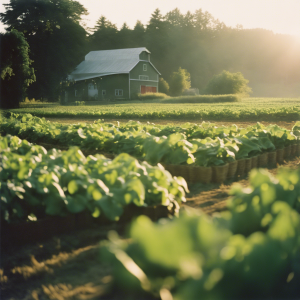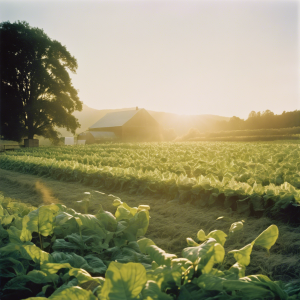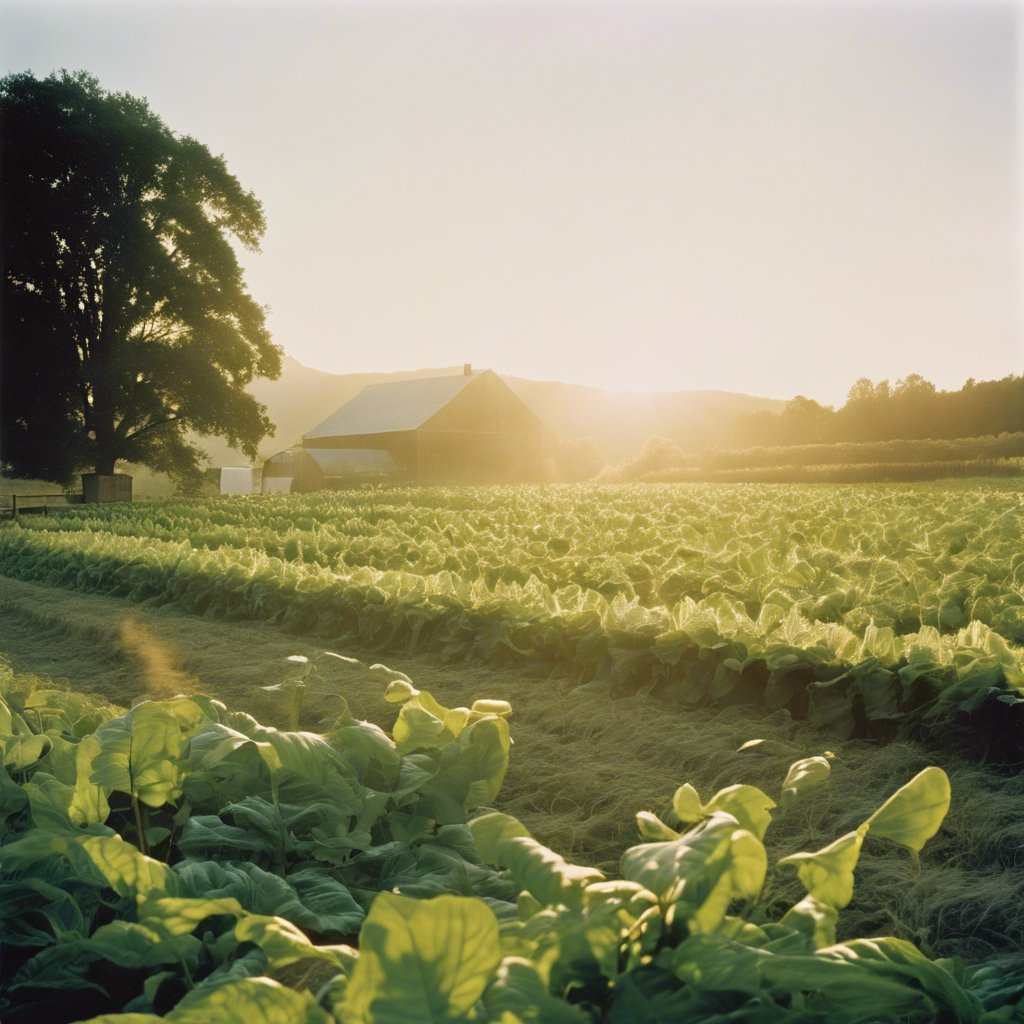In the realm of organic farming, where the health of the soil is paramount, understanding and harnessing the biological components of the soil becomes not just a practice but an art form. Soil isn’t just “dirt”; it’s a complex ecosystem teeming with life, from visible earthworms and insects to the microscopic bacteria, fungi, and archaea that play crucial roles in plant health and productivity. These microorganisms are at the heart of nutrient cycling, the decomposition of organic matter, and, significantly, the stimulation of plant growth. However, navigating this microscopic world, especially with an aim to enhance crop yield, quality, and sustainability, presents a unique set of challenges and opportunities for the organic farmer.
The Critical Role of Soil Microbes in Organic Farming
Soil microbes are the unsung heroes of agriculture, performing essential functions that underpin the health and productivity of the farm ecosystem. They are responsible for critical processes such as the cycling of nitrogen and carbon, breaking down crop residues, and enhancing plant growth through various mechanisms. However, not all microbes contribute positively; some pathogenic strains can negatively impact crop health, leading to reduced yields or even total crop failure.
Managing the microbial life within the soil is a nuanced endeavor. Unlike the more straightforward management of soil’s chemical and physical properties, such as pH and structure, the microbial component requires a deeper, more nuanced approach. The dynamic and complex nature of microbial communities, coupled with their microscopic size, makes them a challenging element to manage effectively. Yet, the potential rewards for successful microbial management in organic farming systems are substantial, offering pathways to improved nutrient provision, decomposition of organic matter, and biocontrol.
 Strategies for Managing Soil Microbes in Organic Farming
Strategies for Managing Soil Microbes in Organic Farming
Microbial Addition
One of the direct strategies organic farmers employ to manage soil microbes is the addition of beneficial microbes. These can be introduced for various purposes, including enhancing nutrient availability, suppressing pests, or stimulating plant growth through hormonal signaling. The goal is to increase the proportion of beneficial microbes in the soil, tailor the microbial community to benefit specific crops, or improve nutrient availability directly.
Commercial microbial inoculants and on-farm generated microbial mixtures are two primary methods for introducing beneficial microbes. These inoculants can significantly impact, forming symbiotic relationships with plants to enhance nutrient and water uptake or protect against pathogens and pests. For instance, rhizobia bacteria inoculants for legume crops and mycorrhizal fungi inoculants are well-documented for their positive effects on plant growth and yield.
Microbial Suppression
Conversely, strategies also exist for suppressing harmful soil microbes. This is particularly relevant when dealing with soil-borne pathogens that can lead to crop failure. Organic farmers might use soil steaming, solarization, or biofumigation with crops like brassicas to reduce or eliminate pathogenic microbes while minimally impacting beneficial ones.
Indirect Management Practices
Beyond direct additions or suppressions, other soil management practices inherently influence microbial communities. These include tillage, crop rotation, cover cropping, and the use of organic mulches. Each of these practices can alter the microbial landscape in ways that are beneficial to crop health and yield, although predicting these outcomes can be complex.
The Microbebio® Advantage
In this dynamic context, Microbebio®’s suite of microbial solutions offers organic farmers a cutting-edge toolkit for optimizing the health and productivity of their soil ecosystems. Microbebio®’s proprietary microbes, mycorrhizae, 100% organic nutrients, and trace minerals are designed to support high crop yield, quality, and sustainability by enhancing the soil’s biological functions.
- Proprietary Microbes and Mycorrhizae: By introducing beneficial microbes and fungi, Microbebio® products stimulate nutrient uptake, improve water efficiency, and enhance resistance to stress and disease, directly contributing to higher yields and crop quality.
- 100% Organic Nutrients: These nutrients feed the soil and plants, supporting the growth of beneficial microbes and enhancing the soil’s overall fertility and structure, leading to healthier, more resilient plants.
- Trace Minerals: Essential for both plant and microbial health, these minerals ensure a balanced soil ecosystem, promoting vigorous plant growth and higher resilience against pests and diseases.
Conclusion: The Future of Organic Farming with Microbial Management
 As organic farming continues to evolve, the management of soil microbes stands out as a frontier of innovation and growth. Microbebio® is at the forefront of this revolution, offering products and strategies that align with the principles of organic agriculture while pushing the boundaries of what’s possible in crop yield, quality, and environmental sustainability.
As organic farming continues to evolve, the management of soil microbes stands out as a frontier of innovation and growth. Microbebio® is at the forefront of this revolution, offering products and strategies that align with the principles of organic agriculture while pushing the boundaries of what’s possible in crop yield, quality, and environmental sustainability.
Organic farmers have at their disposal an array of tools and practices for microbial management, from commercial inoculants like those offered by Microbebio® to traditional practices like composting and crop rotation. The integration of these strategies can lead to a more robust, productive, and sustainable farming system, one that not only supports the health of the soil but also contributes to the farmer’s bottom line.
As we look to the future, the role of microbes in agriculture will only become more central. Innovations in microbial research and product development will continue to provide organic farmers with new tools to manage their soil ecosystems more effectively, leading to healthier crops, higher yields, and a more sustainable form of agriculture.
